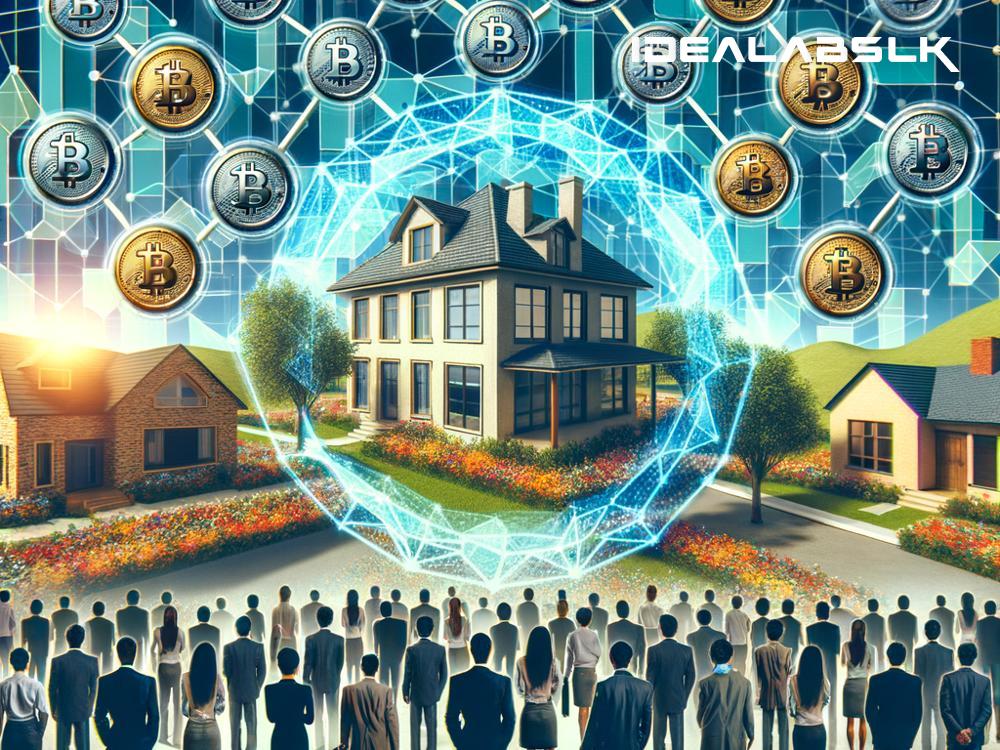Blockchain in Real Estate: Empowering Small Investors through Tokenization
Real estate has always been considered a valuable asset class for investors, offering potential for long-term growth, income through rentals, and diversification of an investment portfolio. Traditionally, investing in real estate was a privilege mostly reserved for the wealthy or institutional investors due to the high entry cost. However, the advancement of blockchain technology is changing the game, democratizing access to real estate investments, and opening doors for small investors. The key to this transformation is a concept known as tokenization.
First things first, let’s unpack what blockchain is. At its core, blockchain is a type of digital ledger technology where transactions are recorded, verified, and stored across a network of computers. This decentralized nature of blockchain makes it secure and transparent, as altering data on one block would require changes across all blocks in the network, which is practically impossible. It's the technology behind cryptocurrencies like Bitcoin.
Now, let’s dive into how blockchain is revolutionizing real estate investing through tokenization. Tokenization involves converting the ownership or value of a real estate asset into digital tokens on a blockchain. These tokens can then be bought, sold, or traded, much like stocks in a company. This process significantly lowers the entry barriers for small investors, allowing them to buy fractions of a property instead of needing the substantial capital to purchase a whole property or even a part of it in traditional scenarios.
The Advantages of Tokenization for Small Investors
Accessibility
Tokenization makes real estate investment more accessible to a broader audience. Investors can now participate with much smaller amounts of money, making real estate investment a reality for many who previously found it out of reach.
Liquidity
Real estate is known for its low liquidity due to the time it traditionally takes to sell properties. Tokenization changes this by enabling the buying and selling of tokenized assets on secondary markets, much like stocks. This increases liquidity, allowing investors to more easily convert their investments into cash.
Transparency and Security
Blockchain's transparent and secure nature means that all transactions are recorded on a ledger that is open for everyone to see but secure from tampering. This reduces the risk of fraud and makes the investment process more transparent, building trust among investors.
Diversification
By lowering the cost of entry, tokenization allows investors to spread their investment across multiple properties or geographies, diversifying their portfolios and potentially reducing investment risk.
Cost Efficiency
Tokenizing real estate assets can significantly reduce the costs associated with transactions and property management. These savings can then be passed on to investors, enhancing their potential returns.
How Does It Work?
The process starts with an asset owner deciding to tokenize their property. The property's value is assessed, and then divided into digital tokens that represent shares in the property. These tokens are then issued on a blockchain platform, ready for investors to purchase.
Investors can buy tokens that fit their budget, making them partial owners of the property. They then benefit from any income generated through rent or appreciation in the property's value. Should they decide to sell their tokens, they can do so on a secondary market, providing liquidity not traditionally associated with real estate investments.
The Future of Real Estate?
While still in its early stages, the tokenization of real estate through blockchain is set to revolutionize the industry. It promises to make real estate investing more accessible, transparent, and flexible, empowering small investors in ways never before possible.
However, as with any emerging technology, there are challenges and risks. Regulatory hurdles, market acceptance, and technology adaptation are areas that need to be addressed as tokenization becomes more mainstream. But the potential benefits are significant, and the trend towards a more democratized real estate market is clear.
In conclusion, blockchain and tokenization are breaking down the barriers that have traditionally made real estate investing the domain of the well-off and institutional investors. By allowing small investors to own a piece of the action, this technology is not just changing how we invest in real estate — it's making investment opportunities more equitable, secure, and accessible to a wide range of people. As this trend continues, we may see a future where anyone with a smartphone and a little bit of capital can be a real estate investor.

